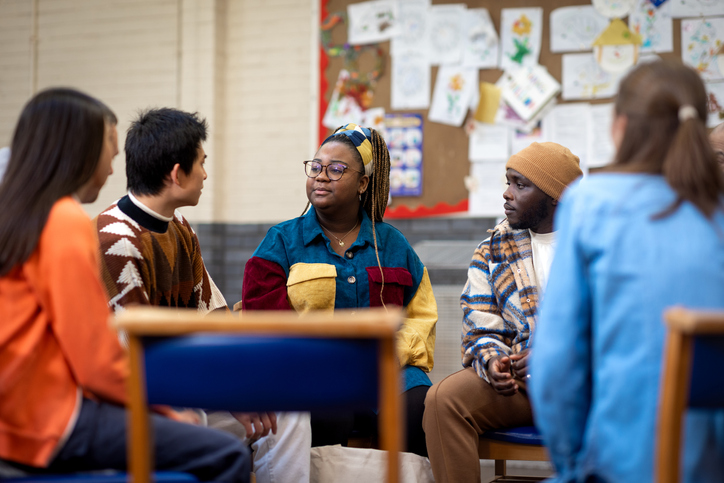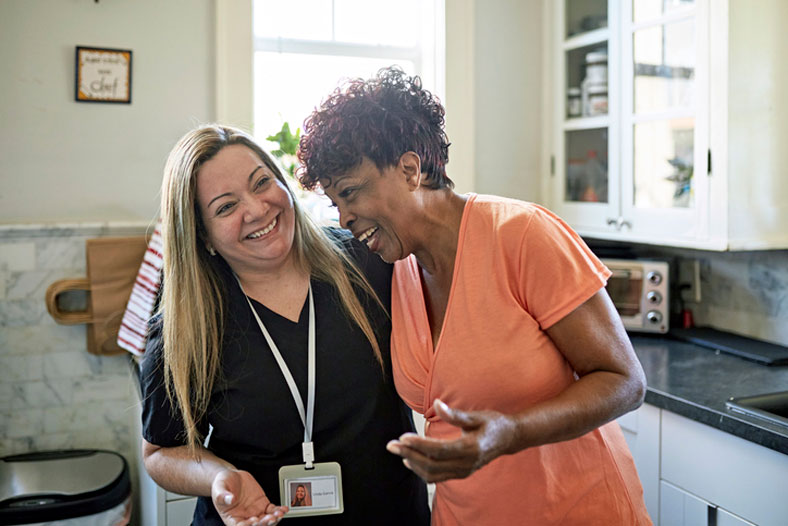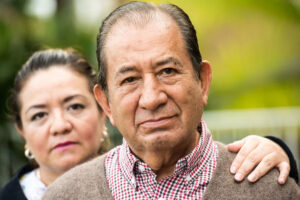Make A Difference
Become a Social Worker In California
California needs compassionate, empathetic social workers. How will you serve?
What You’ll Find in California’s Schools of Social Work
Many of California’s Masters of Social Work programs offer specialized degree tracks for students entering specific areas of the field. While they vary between schools, some common specializations include child welfare, healthcare social work, clinical practice, and gerontology. Some even offer dual degree tracks that allow students to earn an MSW and a degree in an area like policy administration or public health.
As a Masters in Social Work student, you won’t just take notes and listen to lectures. You’ll get the chance to help real people with your new skills before you even graduate. School administrators help students find placements with relevant agencies where they observe and work with seasoned field supervisors. At accredited Masters Social Work programs of all kinds, all students take part in this impactful, formative experience.
Bachelor’s of Social Work (BSW)
Though you don’t need a BSW to enroll in an MSW program, earning one may give you a head start. Over the course of about four years, BSW students learn about foundational topics like counseling and case management.
Traditional MSW Programs
Traditional two-year Masters Social Work programs are designed for students with little to no experience in the field. The first year is typically dedicated to basic principles like social policy and individual and group counseling.
Online MSW Programs
Innovations in classroom tech have made earning a Masters in Social Work more accessible than ever. Through pre-recorded, asynchronous classes, students can listen to lectures anywhere at any time.
One-year MSW Programs
Students with BSWs can enroll in one-year programs that dive right into advanced topics. In some cases, these Advanced Standing programs can actually help students save money as well as time.
Explore
California Social Work Careers and Salary

Los Angeles
As one of the biggest cities in the US, LA has more than its fair share of social issues. The majority of students in its public school system live in poverty, gang violence tears apart already vulnerable neighborhoods, and as cost of living surges, more people go without basic necessities. So even though almost 128,000 social service professionals are already employed in the metro area, these circumstances underscore Los Angeles’ need for more talented social workers.

San Diego
Located less than 20 miles from the Mexican border, San Diego is home to almost 350,000 immigrants. To build their new lives, many new Americans turn to the area's community-based, city, county, and federal agencies for support. Immigration social workers play pivotal roles in all of these organizations, but it takes a diverse team to meet this population’s needs.

Sacramento
Sacramento’s economy seems to be stabilizing after the peak of the COVID-19 pandemic, but many of its most underserved people are far from a full recovery. Homelessness has exploded. Mental health issues plague struggling families. And in neighborhoods close to the city’s numerous industrial zones, pollution runs rampant. Partnerships between city, county, and independent social service agencies promise to right these wrongs.

San Francisco
While San Francisco is known for its vibrant Asian-American and LGBTQ+ neighborhoods, the widening wealth gap and ongoing housing crisis prevent it from feeling anywhere close to an inclusive utopia. However, hope isn’t lost. The San Francisco Human Services Agency leverages its $1 billion budget to introduce new programs every year. And with an impressive nonprofit advocacy network, San Francisco’s historically ignored people are rapidly gaining a voice.

San Jose
The Silicon Valley tech boom brought unheard-of wealth into San Jose. But unfortunately, most of the area’s residents never reaped the benefits. While everyone from child welfare social workers to homeless outreach advocates are needed to provide frontline support, the city also needs social justice researchers and policy advocates to enact long-lasting systemic change.
How a Masters in Social Work Helps You Help Others
Millions of Californians rely on social services. Some just need a little help in the here and now. Others are battling mental illness, homelessness, domestic violence, and other long-term, life-altering issues. By earning a Masters in Social Work, you can learn how to offer these people the comprehensive level of care they deserve:
- Assessment and Mental Health Diagnosis.
- Clinical Counseling Techniques.
- Crisis Intervention.
- Case Management.
- Program Evaluation.
- Research.
- Community Organization.
- Advocacy and Policy Reform.
- Leadership, Administration, and Personnel Management.
Learning these skills takes time and effort, but if you’ve committed yourself to promoting equity and justice, you’ve already taken the first crucial step.
Licensure Requirements for Social Workers in California
In California, Licensed Clinical Social Workers (LCSWs) can provide a number of complex mental health services unlicensed social workers can’t. But earning an MSW is only one part of the licensing process. Before looking for a program that can prepare you for licensure, learn more about California’s unique social work licensing laws.
Emerging Needs in Social Work
As a field, social work can’t afford to stay stagnant. Frontline professionals, administrators, and policy advocates alike must keep their eyes open for new, worrying trends and develop evidence-based solutions. Otherwise, countless people stand to fall through the cracks.
If you’re planning a social work career in California, keep the state’s ever-shifting social landscape in mind:
- In the coming years, the state’s elderly population is expected to increase astronomically. Gerontology social work may become as central to the field as child welfare.
- As California’s population surges, case management is becoming an increasingly difficult task. Data analysis skills could very well become central to the social worker toolkit.
- Wildfires, droughts, and the fallout from decades of industrial pollution are putting climate change in the spotlight. As these disasters multiply, environmental justice becomes more synonymous with social justice.
- Though social workers have always played important roles in the justice system, some law enforcement agencies in California have begun partnering with social service organizations to improve their own procedures and policies.
- California is home to about a quarter of the US’s foreign-born population. With debates about immigration laws raging across the nation, California’s social service experts may prove essential to bringing a dose of humanity and experience to the table.
- While California is a leader in making social justice a priority, people of color and members of the LGBTQ+ community still from violence, discrimination, and homelessness at alarmingly high rates. County social service agencies continue to bolster inclusive programs, but systemic change is still desperately needed.
- Telehealth services (social, health, and mental health services delivered online) are making support more accessible than ever before. But with this new technology comes a number of ethical and practical concerns that tomorrow’s social workers will have to overcome.
As you earn a Masters in Social Work, you’ll have the chance to not just learn about these topics, but help practicing professionals confront them in real time.
Recent Articles








